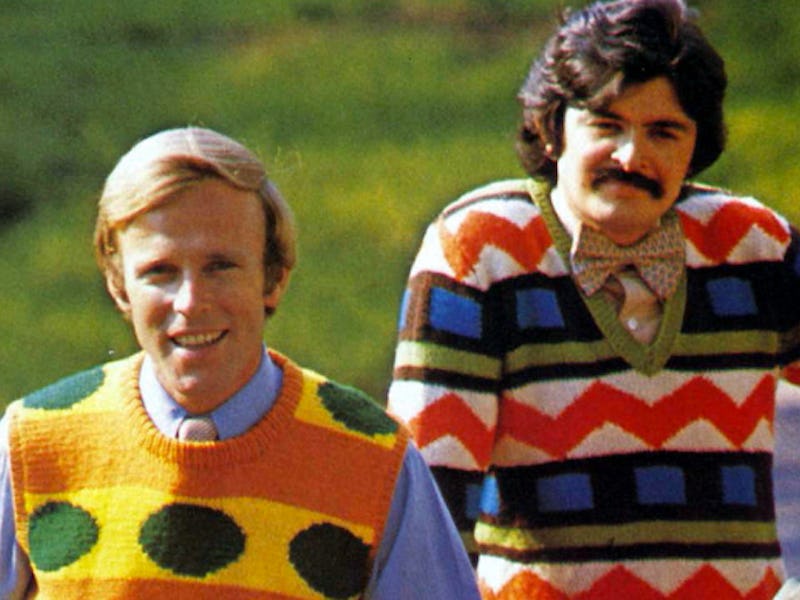Why was problematic favorite Ken Bone able to shine so brightly at the presidential debates? Probably because he was so feeling damn good in that soft red, cotton sweater. But if Bone had been wearing a scratchy wool sweater, he most likely would have felt much like his clothing — rough as hell.
With Halloween behind us and the holiday season up ahead, it’s a lesson that could help us all out as we bundle up. The researchers behind a new study on the sense of touch published in Science argue that touch has a strong influence on the formation of social impressions and decision making. In a series of six experiments, they had subjects interact with the haptic experiences of weight, texture, and hardness. The results of these experiments, they wrote, supported the hypothesis that “our understanding of the world is not an abstract proposition but fundamentally depends on our multi-sensory experiences with it.”
In one of the six trials in the study, 64 participants were asked to complete either a puzzle consisting of with regular, smooth pieces or one made up of sandpaper-covered pieces. After messing around with the pieces, they were told about an ambiguous social interaction and asked to form impressions about the interaction. Their thoughts were consistent with the metaphor that things can “get rough”: The people who completed the rough puzzle thought the social interaction was more difficult and harsh compared to those who interacted with the smooth puzzle. In a follow-up trial in which participants played a bargaining game, the subjects who completed a rough puzzle were also more likely to give in to worse offers.
Hopefully that's not a scratchy sweater.
In a different trial, subjects were first asked to interact with either a soft piece of blanket or a hard block of wood and then evaluate the interaction between a boss and employee. Participants who had felt the hard block thought the employee was being more rigid and strict than the participants who felt the blanket.
Then, 86 participants sat on their hands while sitting in either a wooden chair or a soft cushioned chair. Their task was to try to negotiate the price of a car. When faced with a second offer, the people who sat on hard chairs were less likely to change their offer price.
The researchers sum up their results by suggesting that touching objects “triggers the application of associated concepts, even to unrelated people and situations.” Touch is believed to have been the first human sense to develop, and so it is an old, trustworthy method for collecting important information. There exists a “physical-to-mental scaffolding” within the mind when it comes to touch. That’s why metaphors like “he’s such a softie” feel so apt.
The study’s findings come with some implications for our daily interactions. If you’re wearing soft clothing, are you likely to think less critically of those around you? If you’re wearing something rough and scratchy, are you more likely to cave in when trying to negotiate a salary? According to this study, the answer is yes (and you should probably wear a Snuggie to the next board meeting).
